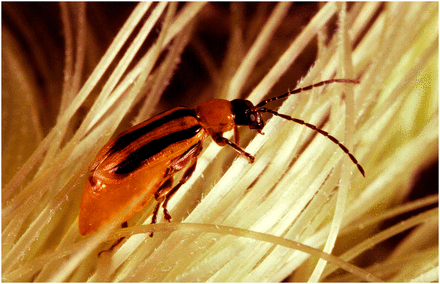
RNAi Pesticides Could Be the Next Big Tool in Agriculture
December 16, 2020| |
Scientists at the University of Arizona led by Professor Bruce Tabashnik have developed a new biotech tool using RNA interference (RNAi) to produce pesticides that target specific pests in the field.
The scientists developed RNAi-based pesticides to silence nucleotide sequences responsible for making proteins necessary for the development of target pests. RNAi targets the protein production of insects. It uses double-stranded RNA (dsRNA) in blocking the usual function of messenger RNA on sending out instructions to make proteins.
The pesticide is projected to be a cheaper alternative because of the low-cost production of dsRNA due to the efforts of biotech companies. Using RNAi-based pesticides is different from conventional pesticides as it only targets certain insects making it more environmentally-friendly.
Furthermore, Prof. Tabashnik suggests the use of integrated pest management to prevent insect resistance by using different methods such as crop rotation, traditional small-molecule synthetic pesticides, and biopesticides in controlling pests. Integrated pest management is still the most effective tool for reducing pest resistance. "Optimize the available technology to create the strongest method possible with RNAi being the core of that," said Prof. Tabashnik.
For more details, read the article in PNAS.
| |
You might also like:
- Pocket K No. 34: RNAi for Crop Improvement
- RNAi Improves CRISPR-Cas9 Efficiency and Selection
- RNAi Product Safety Assessment Workshop
Biotech Updates is a weekly newsletter of ISAAA, a not-for-profit organization. It is distributed for free to over 22,000 subscribers worldwide to inform them about the key developments in biosciences, especially in biotechnology. Your support will help us in our mission to feed the world with knowledge. You can help by donating as little as $10.
-
See more articles:
-
News from Around the World
- ISAAA Short Course Highlights Relevance of Integrating Research, Science-based Regulation, and SciCom in Sustainable Agri Dev't
- ISAAA Shares 2019 Global Biotech Crop Adoption to Stakeholders in the Philippines and Arab Region
- Give a Gift of Knowledge
- Webinar: Biotech Crop Adoption in 2019 and Latin America's Experience
- NBMA Validates National Biosafety Guidelines on Gene Editing in Nigeria
- University of Florida Study Uncovers Vanilla DNA Mystery
- RNAi Pesticides Could Be the Next Big Tool in Agriculture
- US FDA Has Approved First GM Pig for People with Red Meat Allergies
- Chinese Scientists Develop Rice Variety Using Ion Beam Technology
- GM Tomato Enriched with L-DOPA Offers Affordable Medicine for Parkinson's Disease
-
Research Highlights
- Soybean Gene Overexpression Offers Resistance to SDS
-
Plant
- Biotech Research Perceived With Caution Globally, but Most Support Gene Editing for Therapeutics
-
Health
- WHO Calls for Actions to Encourage Acceptance and Uptake of COVID-19 Vaccines
-
Read the latest: - Biotech Updates (February 4, 2026)
- Gene Editing Supplement (January 28, 2026)
- Gene Drive Supplement (February 22, 2023)
-
Subscribe to BU: - Share
- Tweet

